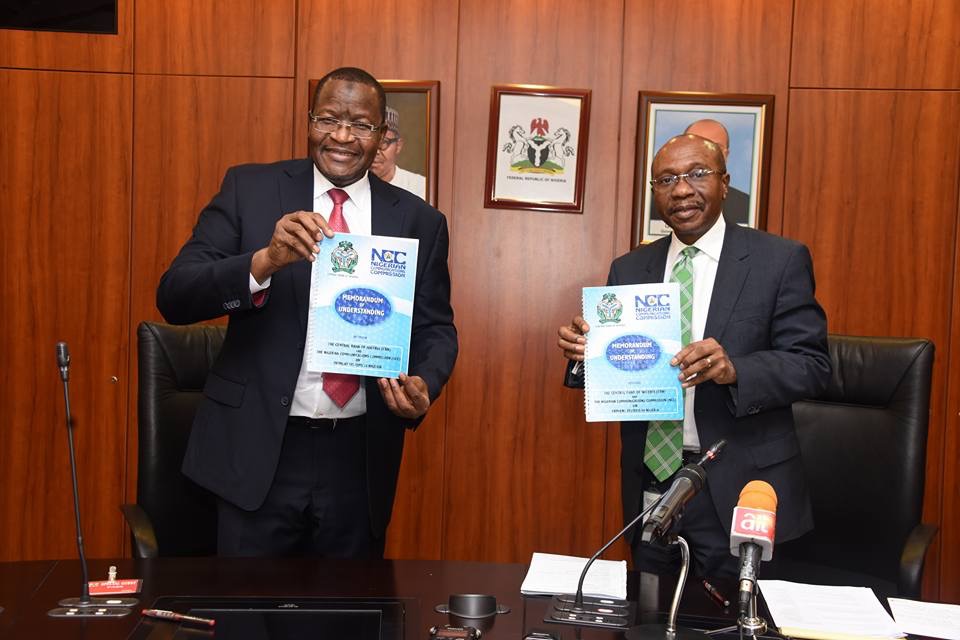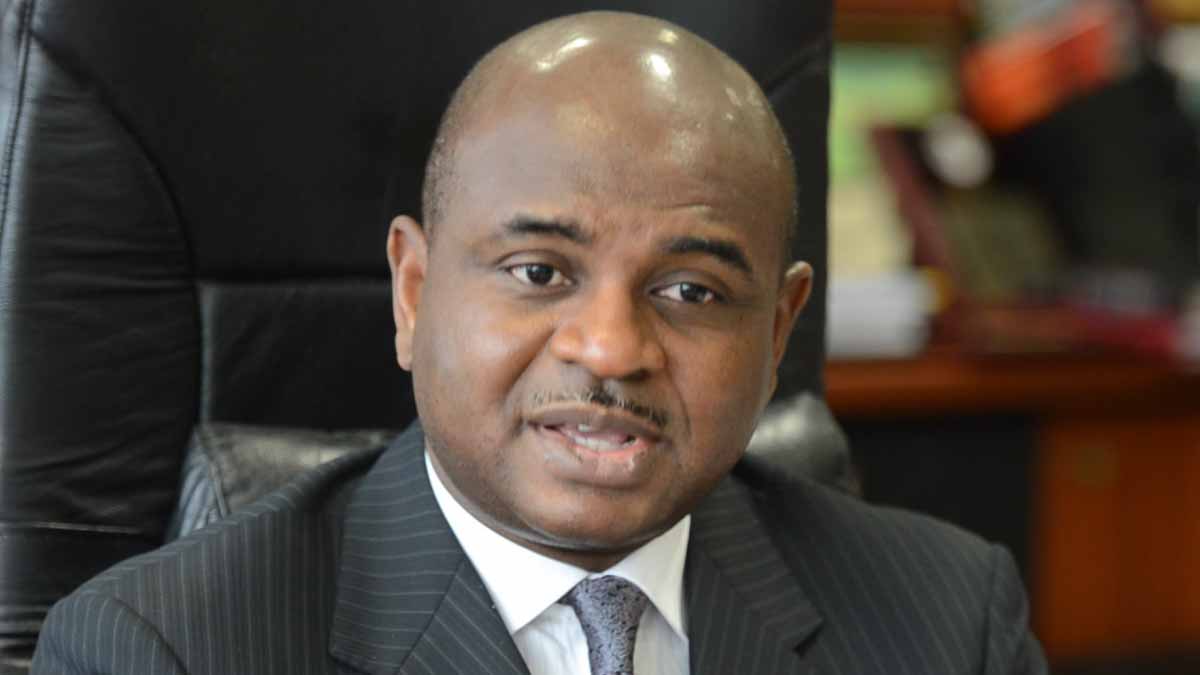Though the Central Bank of Nigeria (CBN) had last disclosed that it has not only opened the window to allow telecoms to drive mobile money services, there has not been any form of corresponding information from the telecoms regulator, the Nigerian Communications Commission (NCC) on the matter, one week after.
Thus, the incommunicado posture of the telecoms watchdog on the matter, according to industry experts leaves much to be desired especially when compared with the experience of Ghana not long ago on the scheme.
Business Hilights recalls that during the administration of former John Mahama government, there was a huge turf war between the National Communications Authority (NCA) and the Ghana Revenue Authority (GRA) as to who is mandated by law to monitor and collect revenue from the telecoms industry. The tussle led to the taxpayer losing hundreds of millions of Ghana cedis in separate contracts and or licenses to various private organizations, some of whom were paid huge sums for virtually no work done.
The situation was so obscene that some of these contractors and licenses got away with termination clauses in contracts that woefully shortchanged the taxpayer, and so when the time came for their contracts to be terminated, they got away with even more millions, in spite of the fact that till date, it has not been explained how some of them got paid even though they did not fulfill their core mandate of monitoring telecoms traffic and revenue in real time.
However, after a long period of tussle, both agencies established a Common Monitoring Platform (CMP) in October 22nd this year for the purpose of doing four key things in real time including telecoms traffic monitoring; telecoms tax revenue assurance; telecoms fraud management and mobile money monitoring.
Besides, while the first three generated their own kind of controversies, which have been addressed somewhat, but the fourth one, mobile money monitoring have started another turf war, this time between the Ministry of Communication on one side, and the financial service regulator, Bank of Ghana (BOG) on the other hand.
In Ghana, the contention was whether mobile money is a communication service or a financial service or both, and who is mandated by law to monitoring.
At the launch of the CMP on Monday, October 22, 2018, the Communications Minister Ursula Owusu Ekuful, whose toughness and resilience led to the establishment of and compliance with the CMP for the first time in Ghana’s history, brandished another muscle by issuing a clear 48-hour ultimatum to telcos to release their mobile money traffic to the CMP operator, KelniGVG, or face sanctions stated in the Communications Service Tax Law, Act 864.
The Minister averred that to the extent that telcos offered mobile money service on their communications network and only to subscribers on their networks, it is a communications service and therefore subject to monitoring by the platform created by the communications sector regulator, NCA.
According to a Ghanaian analyst, Samuel NII Narku Dowuona, “Prior to that ultimatum and insistence by the minister, NCA’s position on mobile money had always been that it is a financial service so subscribers who have issues with mobile money should report to the financial service regulator, BOG. Those were the words of the NCA Director-General, Joe Anokye at a Mobile Money Forum during the Cybersecurity week late last year. And it reflects the long-standing posture of the NCA on mobile money”.
In Ghana, the tussle seems to be endless even as Nigeria is about to venture into similar terrain very soon.
Already, as part of action plans to fast track the takeoff of the scheme, the apex bank last week asked telecommunications companies that intend to deepen financial inclusion in the country through mobile money services to make a minimum capital deposit of N5bn apparently without recourse to NCC, the telecoms regulator.
It was gathered that the CBN had also granted the telcos a provisional approval to apply for a Payment Service Bank licence through a subsidiary company.
As contained in the draft guidelines issued by the CBN, an evidence of the payment of N5bn must be provided when applying for an Approval in Principle. The telecoms companies that have indicated interest in driving the financial inclusion plans of the Federal Government are MTN, Airtel, 9mobile, Ntel, and Globacom.
But so far, the NCC has remained silent which has become a big concern to industry stakeholders.









